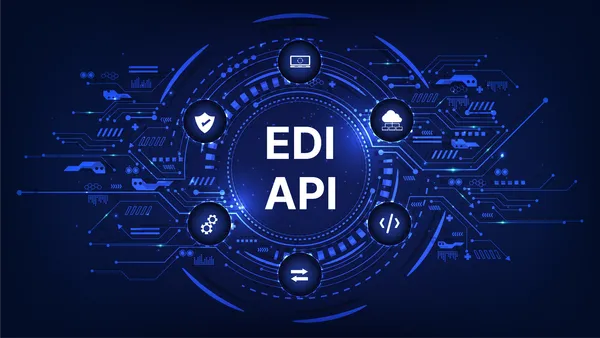Dive Brief:
- Forrester kicked off its 2019 predictions for distributed ledger technology (DLT) with the forecast that the term "blockchain" will fall out of favor as enterprises turn to more inclusive and neutral DLT terminology. It pushes away from blockchain's "associations with the Wild West of cyptocurrencies and initial coin offerings."
- DLT encompasses a broader understanding of the technology that is not limited by strict parameters of what a blockchain is — parameters that are still debated by many technologists, detracting from more important questions about the future of the underlying tech. Shifting the language will help businesses become more realistic about DLT capabilities and what is needed to make a project successful, according to the report. Failure to reconcile hype and expectations with reality could cause a backlash.
- In 2019, regulatory and data hurdles may prove greater stumbling blocks for innovators, begetting the need for clearer data governance policies and regulatory alignment, according to Forrester. DLT will see "steady but cautious" development in tools and services, and many new players will join leading platform providers in the market with help from highly-funded projects targeting deficiencies in current architectures.
Dive Insight:
Though siloed use cases demonstrate innovative potential for blockchain in produce tracking and art auctions, the technology still has a long way to go. But it's potential market — $3.1 trillion by 2030 — is high.
While many technologists have pinned hopes on blockchain to help solve data privacy and security problems, others are uncertain of what will result as sensitive and private information is logged on the immutable ledger. "Privacy poisoning" could get applications and companies in trouble with regulations such as GDPR.
There remain many more "buts" businesses have to deal, according to the report, including:
- A potential "blockchain winter" brought on by hype and unrealistic promises;
- Problems generating reliable revenue from DLT projects;
- Limited breakthroughs in 2019 in the tokenization of assets, which will reinvent processes and business models;
- A lack of major transformation or revolution in industry or processes to point to;
- Many businesses still ending or shelving their projects, even as "potentially transformational" projects hit the market.
These challenges may be an insurmountable risk for many businesses to take the leap and dabble in the emerging technology. Treading carefully and assessing the end-to-end implications of a DLT application is critical.
And good luck building the teams to carry a distributed ledger technology mission out: Blockchain engineers have joined artificial intelligence experts as some of the most in-demand, and therefore more expensive, technologists in the market.













